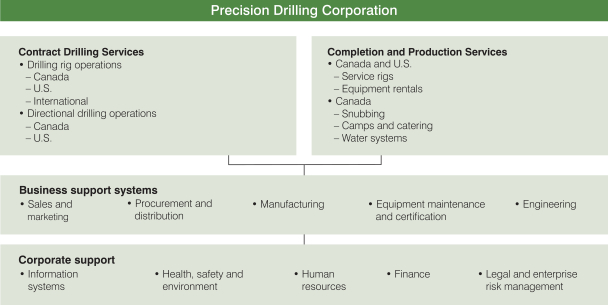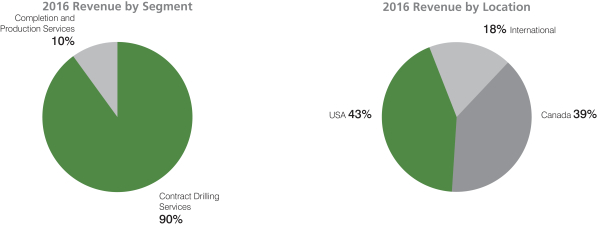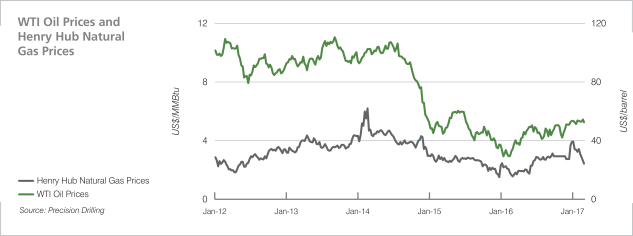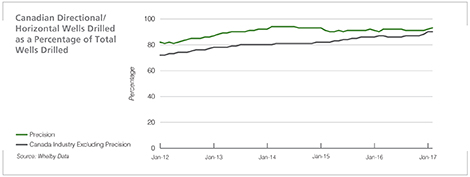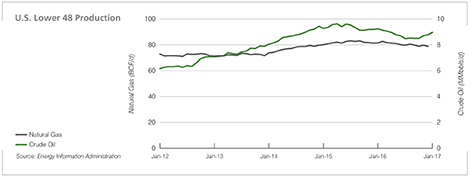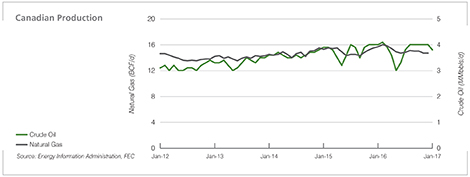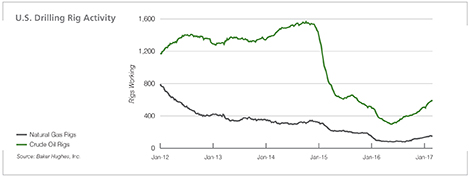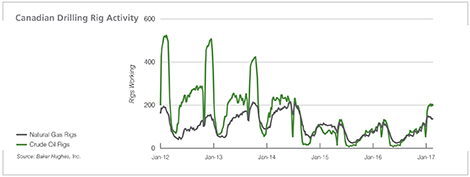Our international operations are subject to risks normally associated with conducting business in foreign countries, including, but not limited to, the following: ∎ an uncertain political and economic environment ∎ the loss of revenue, property and equipment as a result of expropriation, confiscation, nationalization, contract deprivation and force majeure ∎ war, terrorist acts or threats, civil insurrection, and geopolitical and other political risks ∎ fluctuations in foreign currency and exchange controls ∎ restrictions on the repatriation of income or capital ∎ increases in duties, taxes and governmental royalties ∎ renegotiation of contracts with governmental entities ∎ changes in laws and policies governing operations of companies ∎ compliance with anti-corruption and anti-bribery legislation in Canada, the U.S. and other countries ∎ trade restrictions or embargoes imposed by the U.S. or other countries. If there is a dispute relating to our international operations, we may be subject to the exclusive jurisdiction of foreign courts or may not be able to subject foreign persons to the jurisdiction of a court in Canada or the U.S. Government-owned petroleum companies located in some of the countries where we operate now or in the future may have policies, or may be subject to governmental policies, that give preference to the purchase of goods and services from companies that are majority-owned by local nationals. As such, we may rely on joint ventures, licence arrangements and other business combinations with local nationals in these countries, which may expose us to certain counterparty risks, including the failure of local nationals to meet contractual obligations or comply with local or international laws that apply to us. In the international markets where we operate, we are subject to various laws and regulations that govern the operation and taxation of our businesses and the import and export of our equipment from country to country. There may be uncertainty about how these laws and regulations are imposed, applied or interpreted, and they could be subject to change. Since we derive a portion of our revenues from subsidiaries outside of Canada and the U.S., the subsidiaries paying dividends or making other cash payments or advances may be restricted from transferring funds in or out of the respective countries, or face exchange controls or taxes on any payments or advances. We have organized our foreign operations partly based on certain assumptions about various tax laws (including capital gains and withholding taxes), foreign currency exchange, and capital repatriation laws and other relevant laws of a variety of foreign jurisdictions. We believe these assumptions are reasonable, however, there is no assurance that foreign taxing or other authorities will reach the same conclusion. If these foreign jurisdictions change or modify the laws, we could suffer adverse tax and financial consequences. While we have developed policies and procedures designed to achieve compliance with applicable international laws, we could be exposed to potential claims, economic sanctions, or other restrictions for alleged or actual violations of international laws related to our international operations, including anti-corruption and anti-bribery legislation, trade laws and trade sanctions. The Canadian government, the U.S. Department of Justice, the Securities and Exchange Commission (SEC), the U.S. Office of Foreign Assets Control, and similar agencies and authorities in other jurisdictions have a broad range of civil and criminal penalties they may seek to impose against corporations and individuals for such violations, including injunctive relief, disgorgement, fines, penalties and modifications to business practices and compliance programs, among other things. While we cannot accurately predict the impact of any of these factors, if any of those risks materialize, it could have a material adverse effect on our reputation, business, financial condition, results of operations and cash flow. Our operations are subject to numerous environmental laws, regulations and guidelines Our operations are affected by numerous laws, regulations and guidelines relating to the protection of the environment, including those governing the management, transportation and disposal of hazardous substances and other waste materials. These include those relating to spills, releases, and discharges of hazardous substances or other waste materials into the environment, requiring removal or remediation of pollutants or contaminants, and imposing civil and criminal penalties for violations. Some of these apply to our operations and authorize the recovery of natural resource damages by the government, injunctive relief, and the imposition of stop, control, remediation and abandonment orders. In addition, our land drilling operations may be conducted in or near ecologically sensitive areas, such as wetlands that are subject to special protective measures, which may expose us to additional operating costs and liabilities for noncompliance with certain laws. Some environmental laws and regulations may impose strict and, in certain cases joint and several, liability. This means that in some situations we could be exposed to liability as a result of conduct that was lawful at the time it occurred, or conditions caused by prior operators or other third parties, including any liability related to offsite treatment or disposal facilities. The costs arising from compliance with these laws, regulations and guidelines may be material. |
